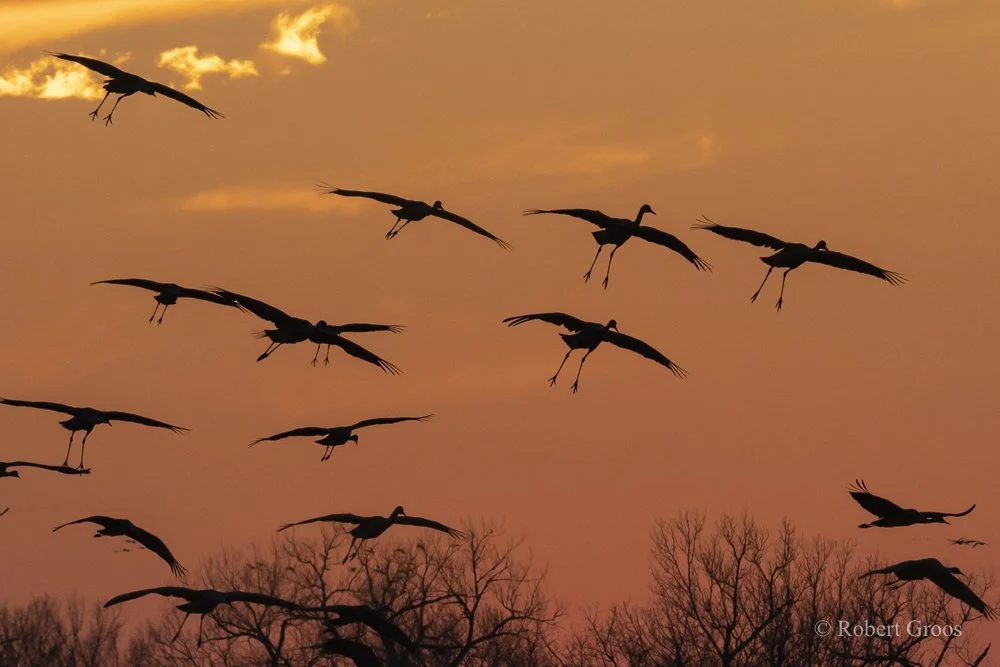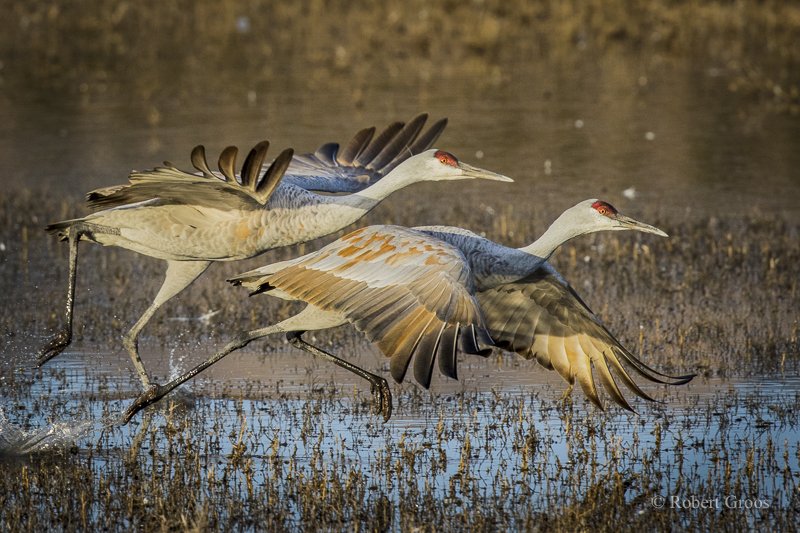A Siege of Cranes
Nebraska may not be on your bucket list of places to visit in early spring; blizzards like those which occurred this year are always a possibility. But if you want to witness the congregation of the world’s largest population of Sandhill Cranes, March is the month for your madness (basketball fans included). A seventy-five mile swath of the Platte River is the staging area for the springtime migration of these magnificent birds who have visited the sandhills and Platte River watershed since before recorded time.
According to the Cornell Lab of Ornithology, the earliest known, undisputed Sandhill Crane fossil, dating back 2.5 million years, was unearthed in Florida. But another fossil, considered by some researchers to be structurally the same as today’s cranes, and dating back 10 million years, was found along the Platte river watershed in Nebraska. Today, these elegant birds stop to rest, refuel, and perhaps find mates before continuing their journey to breeding grounds in the boreal forests of Canada, Alaska, and Siberia.
While living in central New Mexico, I witnessed the arrival of flocks of Sandhill Cranes who flew over my rural property in November on their way to their wintering grounds at Bosque del Apache National Wildlife Refuge sixty miles away (as the crane flies). Freezing temperatures and frostbitten fingers were almost guaranteed at sunrise when the flocks would suddenly lift off from their water roosting sites and fly to nearby farmland foraging areas. In spite of the cold, it was always a memorable experience. Usually, I could count on seeing several thousand cranes at Bosque.
Sandhill Cranes return to roost at sunset
With those memories in mind, when I received an invitation to visit with a former college classmate at the Crane Trust facilities across the Platte River from his farmland in Grand Island, Nebraska, the chance to experience, not thousands, but hundreds of thousands of Sandhill Cranes in close proximity was an opportunity not to miss.
Staying at the Crane Trust accommodations made possible both sunrise and sunset viewing of the birds in the comfort of heated blinds along the sandbars of the river where the cranes roost at night. Breakfast and dinner with like-minded crane enthusiasts not withstanding, the total experience afforded by the Crane Trust was truly magical, as you will see and hear in the following video I made during my one night stay.
What do you call a flock of cranes? There are several variations, but two stand out in my mind for their metaphoric description: “a sedge of cranes, and “a siege of cranes.” After viewing the mass of birds in the videos, I’ll let you decide which description you prefer.
Timelapse sunset video of cranes returning to Platte River sandbar roost
Sandhill Cranes landing gear in down position
Sandhill Crane on Platte River sandbar roost
Sandhill Cranes roost on sandbars of Platte River
Sandhill Cranes in water
Sandhill Cranes taking flight
Sandhill Cranes in water roost
If you enjoyed this post, please share the link with your friends. To be added to my mailing list for future articles, contact me at: robertgroos1@gmail.com. Your information will not be shared, and you can unsubscribe at anytime. Thank you.













